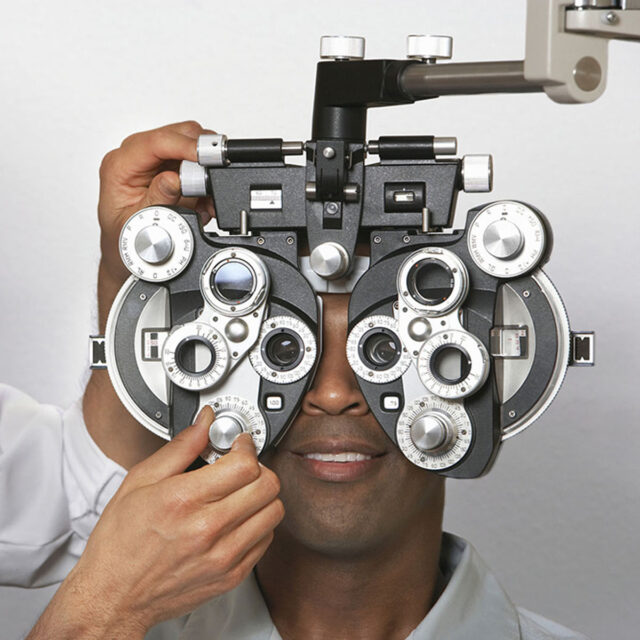Image by ravinems from Pixabay
Have you experienced staring at a blank wall or the clear blue sky then suddenly seeing tiny shapes floating in front of your eyes? How about rapid bursts of light akin to camera flashes erupting in your field of vision?
Floaters and flashes are normal and, in most cases, need not involve laser eye surgery in Dubai. Read on to learn more about the floaters and flashes phenomenon and when you should see a doctor about them.
What Are Floaters?
People often describe floaters as dots, spots, circles, strings, and threads. The shapes seem to appear in front of an individual’s eyes and obstruct one’s field of vision. They seem to move when the eyes move, start drifting when the eyes stop moving, and vanish when one tries to focus on them.
Floaters are, in fact, actual physical obstructions, which could be a speck of protein or a group of cells suspended in the eye’s vitreous humor.
The vitreous humor is a gelatinous substance that fills the void between the lens and the retina. It is through the vitreous humor that the light refracted by the cornea and the lens passes to reach the retina, which receives and captures the images projected onto it and sends them to the brain for processing.
As a person ages, the vitreous separates to form fluid pockets among the gel, and these coalesce into larger fluid pockets, which keep separating the gel to become more and more stringy. The stringy part of the vitreous gel gradually shrinks and loses its thick and viscous consistency, making the substance thinner and stringier. The now more fibrous vitreous fluid becomes prone to clumping, and these clumps become floaters.
While suspended in the vitreous humor, these floaters can obstruct the light passing through the vitreous humor. When this happens, they cast a shadow on the retina.
Technically speaking, therefore, what one sees as floaters in front of their eyes are not the floaters themselves, but simply the shadows they cast on the back of the eyes.
What Are Flashes?
Flashes, on the other hand, are exactly what their name suggests. They are bursts of light. People often describe the experience as akin to seeing stars, lightning, light streaks, fireworks, or a camera flash. They are more noticeable in the dark or just after you wake up in the morning.
Like floaters, flashes can be visually distracting, and they seem to take place in front of the eyes, but like floaters, everything happens internally.
Flashes are mainly caused by the same phenomenon that leads to floaters: aging and its effects on the vitreous humor. Specifically, as you age, the vitreous humor naturally shrinks and separates from the retina. When it does peel away, it pulls on your retina, which then stimulates it, and this can lead to the flashes of light you see.
What Causes Floaters and Flashers?
As indicated in the discussion above, posterior vitreous detachment, the shrinking of the vitreous humor that leads to stringiness and detachment from the retina, is the most common cause of acute-onset floaters and flashes. This, in turn, is mainly due to aging.
According to a study by Johnson & Hollands (2012), posterior vitreous detachment has a prevalence rate of 24% prevalent among 50-59-year-old adults and a staggering 87% prevalence rate among people older than 80.
However, posterior vitreous detachment is not the only possible cause of floaters and flashers. Other potential causes include:
1. Migraine
Migraine is mainly associated with flashes. Flashes caused by migraines often look different from vitreous light flashes. Moreover, migraine can cause flashes in younger populations.
2. Posterior Uveitis
Posterior uveitis is the inflammation of the uvea in the back of the eye, and this can lead to the deposit of debris in the vitreous fluid, which can cause the floater phenomenon.
3. Bleeding
Bleeding in the eyes will release blood cells that could float in the vitreous humor before being absorbed.
4. Retinal Tear
A retinal tear is a potential consequence of posterior vitreous detachment. The shrinking vitreous humor could pull on the retina with such force that the retina could tear. This often happens to also tear a small blood vessel, which bleeds, causing blood cells to float in the vitreous
5. Retinal Detachment
If untreated, a retinal tear could cause fluid to intrude into the space behind the retina. This could lead to retinal detachment and potential blindness.
6. Medication
If medication is injected into the vitreous humor, it could cause bubbles to form, or the undissolved parts float around until absorbed. You will perceive these bubbles or suspended medications as floaters.
Should You See a Doctor When You See Floaters and Flashes?
Floaters and flashes can come and go and are usually not a cause for concern. However, you are advised to consult an eye doctor if any of the following is true.
- Your floaters or flashes are persisting.
- You notice more floaters or more frequent flashes episodes.
- Your floaters or flashes are interfering significantly with your activities of daily living.
- You have both floaters and flashes in the same eye.
- You seem to be losing vision in the periphery.
- You seem to be losing central vision.
- Your vision seems to be graduated or different in quality from one side to the other.
While most floaters and flashes are benign, you should not ignore them when they seem to be persistent, and getting seriously overwhelming, or are accompanied by vision impairment.
Remember, floaters and flashes may be signs of retinal tearing and detachment, painless conditions with potentially serious consequences.
It’s best to consult your doctor for floaters and flashes to check if you have posterior vitreous detachment. This way, a doctor can fully assess your condition and make a plan.
Surgery itself is usually not recommended for floaters and flashes unless the benefits outweigh the risks, just like presbyopia treatment surgery is not something you can get just because you want it.
However, the best thing about consulting an ophthalmologist is that doing so will let you exclude the possibility of retinal tearing and detachment.
Consult an eye doctor about your floaters and flashes today.







